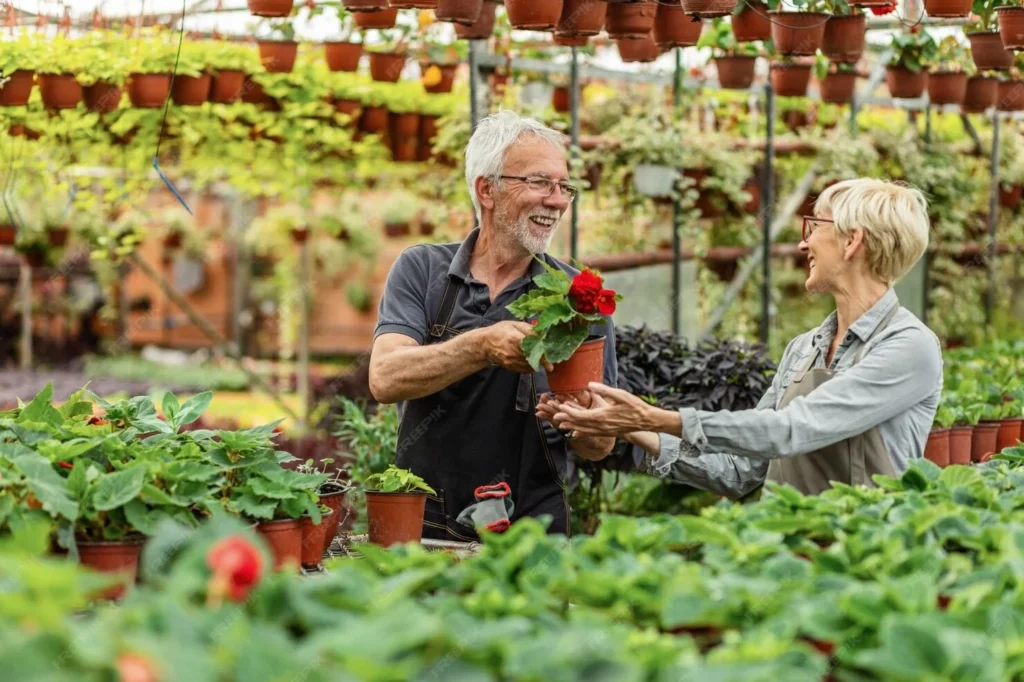Gardening for seniors is far more than a hobby it’s a holistic approach to enhancing physical, mental, and emotional well-being. Engaging in Gardening for seniors is more than a pastime it’s a way to improve physical health, mental clarity, and emotional well-being. Engaging in gardening activities for seniors encourages gentle movement, stimulates the mind, reduces stress, and provides a sense of accomplishment. From planting flowers to growing vegetables, seniors can enjoy a meaningful hobby that supports overall wellness.
This guide explores the benefits of gardening for elderly adults, practical tips for safe gardening, and ways to make outdoor activities for seniors both fun and rewarding.
Physical Benefits of Gardening for Seniors
Staying active is essential as we age. Gardening naturally incorporates low-impact movement that strengthens muscles, improves flexibility, and enhances coordination. Tasks such as digging, planting, watering, and pruning provide light exercise that promotes overall health without putting too much strain on the body.
Benefits include:
- Strengthening muscles in arms, legs, and core
- Increasing joint flexibility, which may reduce stiffness and arthritis discomfort
- Supporting heart health through moderate activity
- Maintaining balance and reducing the risk of falls
Even light gardening, like trimming plants or watering flowers, contributes to mobility. Seniors can enhance safety while gardening by following fall safety tips for seniors, which help prevent injuries during daily activities.
Mental Health Benefits of Gardening
The mental health benefits of gardening are significant. Spending time with plants and outdoors can lower stress levels, improve mood, and increase feelings of happiness. Gardening promotes mindfulness, helping seniors focus on the present moment while nurturing life around them.
Key mental health advantages include:
- Reducing stress and anxiety through sensory engagement and outdoor activity
- Improving mood and happiness with a sense of accomplishment
- Stimulating cognitive function through planning and problem-solving tasks
- Combating feelings of depression and loneliness
- Encouraging mindfulness and mental clarity
For seniors who experience isolation, community gardens or social gardening programs provide meaningful interaction, boosting emotional well-being and fostering connections.
Cognitive Benefits of Gardening for Elderly Adults
Gardening keeps the mind active. Planning garden layouts, remembering watering schedules, and managing plant care all require focus and memory. Seniors who regularly participate in gardening for elderly activities may experience:
- Improved memory and attention
- Better problem-solving and planning skills
- Reduced risk of cognitive decline and dementia
Engaging multiple senses sight, touch, smell, and taste when harvesting produce makes gardening a full-body and mind activity.
Social and Emotional Benefits
Gardening offers emotional rewards by giving seniors a sense of responsibility and achievement. Seeing seeds sprout and plants flourish boosts self-esteem and reduces stress.
Socially, senior wellness activities like group gardening or community projects create opportunities for meaningful connections. Sharing tips, exchanging plants, or simply enjoying conversation in a garden can alleviate loneliness and promote happiness.
Nutritional Benefits of Gardening
Growing fruits, vegetables, and herbs encourages healthier eating habits for seniors. Fresh produce is nutrient-rich, motivating seniors to consume more wholesome foods.
Benefits include:
- Improved digestion and gut health
- Stronger immune system
- Better heart health and increased energy
- Increased creativity in meal preparation using homegrown ingredients
For seniors looking for additional guidance on nutritious meal planning, meal prep tips for seniors help maintain a balanced diet while enjoying homegrown produce.
Safe Gardening Tips for Seniors
Safety is essential for seniors with mobility challenges or chronic health conditions. Follow these tips to enjoy gardening safely:
- Use raised garden beds to reduce bending and kneeling
- Select ergonomic, lightweight tools to minimize strain
- Wear gloves, hats, and sunscreen for protection
- Stay hydrated and rest frequently, especially on hot days
- Start with small tasks and gradually take on more
- Consider container gardening or indoor plants if mobility is limited
These strategies ensure gardening remains enjoyable and safe for seniors of all abilities.
Why Gardening is a Perfect Hobby for Seniors
Gardening for seniors combines gentle physical activity, mental stimulation, emotional satisfaction, and social interaction. It can be adapted to suit individual abilities, available space, and personal preferences, whether it’s a balcony garden, backyard, or community plot.
Through gardening, seniors reconnect with nature, nurture life, and find purpose in daily activities. It’s a hobby that supports the body, mind, and spirit, making each day more fulfilling.
Conclusion
Gardening provides seniors with more than aesthetic enjoyment it promotes physical health, mental clarity, emotional happiness, and social connection. From planting seeds to maintaining a flourishing garden, seniors gain exercise, mindfulness, and a sense of accomplishment.
Incorporating gardening activities for seniors into daily routines encourages wellness, combats loneliness, and improves quality of life. Whether through personal or community gardens, it’s never too late to experience the many benefits of gardening for elderly adults.
FAQs
What are the best gardening activities for seniors?
Raised beds, container gardening, and indoor gardens are excellent for seniors, particularly those with mobility limitations.
How does gardening improve mental health for seniors?
Gardening reduces stress, encourages mindfulness, boosts mood, and provides a sense of accomplishment.
Can gardening prevent cognitive decline?
Yes, planning and maintaining a garden stimulates memory, attention, and problem-solving skills.
Is gardening safe for seniors with health issues?
Yes, with precautions like ergonomic tools, gloves, sun protection, and taking breaks, gardening is safe and beneficial.
How often should seniors garden?
Even 20–30 minutes a few times per week can deliver significant physical, mental, and social benefits.

